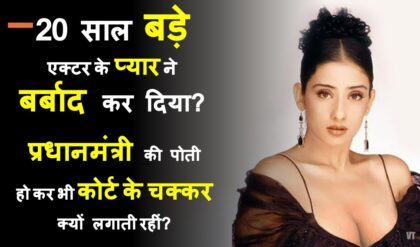In a recent turn of events, Suniel Shetty has expressed his frustration regarding the production of “Border 2,” a sequel to the iconic 1997 film “Border.” The original film, directed by J.P. Dutta, was a significant success and is remembered for its portrayal of the valor and sacrifice of Indian soldiers during the India-Pakistan war of 1971. With fans eagerly anticipating a continuation of this powerful narrative, Shetty’s anger reflects not just personal sentiments but also the larger implications of how sequels are developed in the film industry.
Suniel Shetty, who played a pivotal role in the original “Border,” has been vocal about his concerns regarding the direction in which “Border 2” is heading. His dissatisfaction stems from the changes in the script, the production process, and the overall vision for the sequel. While fans are excited about the return of a beloved franchise, Shetty’s perspective sheds light on the challenges that filmmakers face when revisiting classic narratives. The actor’s passion for the original film is evident, and his desire to honor its legacy is commendable.
One of the main issues that Shetty highlighted is the importance of maintaining the authenticity and emotional depth that made “Border” resonate with audiences. The original film was not just a war drama; it was a tribute to the soldiers who fought valiantly for their country. Shetty emphasized that any sequel must capture the same spirit of heroism and sacrifice. He believes that if the sequel strays too far from these themes, it risks losing the essence of what made the first film so impactful. This concern is particularly relevant in an industry where sequels can often become diluted versions of their predecessors.
Suniel Shetty’s frustration also stems from the evolving landscape of the film industry. With the advent of digital platforms and changing audience preferences, filmmakers are under immense pressure to deliver content that is commercially viable. Shetty worries that the focus on box office success might overshadow the storytelling aspect of “Border 2.” He advocates for a careful balance between entertainment and the portrayal of significant historical events. The challenge lies in crafting a narrative that engages contemporary audiences while remaining true to the historical context and emotional core of the original story.
In addition to his concerns about the script and direction, Shetty has also expressed disappointment regarding the star cast of “Border 2.” The original film featured a stellar ensemble, including actors like Akshaye Khanna, Jackie Shroff, and Sunil Shetty himself, all of whom delivered memorable performances. Shetty’s anger seems to stem from the feeling that the new casting choices may not do justice to the legacy of the original film. He believes that the casting should reflect the gravity of the subject matter and that the actors involved should have a deep understanding of the themes being explored. This highlights the importance of thoughtful casting in sequels, especially when the original film has set high standards.
Moreover, Shetty’s comments raise questions about the role of veteran actors in contemporary cinema. As a seasoned performer, he is acutely aware of the challenges faced by actors in an industry that increasingly prioritizes youth and commercial appeal. His advocacy for a cast that includes experienced actors who can bring depth to their roles speaks to a broader conversation about the need for diverse age representation in films. Shetty’s frustration can be seen as a call for respect for seasoned talent and their contributions to storytelling, particularly in genres that require emotional gravitas.
Despite his anger and concerns, Suniel Shetty remains hopeful about the potential of “Border 2.” His passion for the project reflects his commitment to the legacy of the original film and its significance in Indian cinema. Shetty has indicated that he is open to discussions with the filmmakers and is willing to collaborate to ensure that the sequel honors the original’s spirit. This willingness to engage in constructive dialogue is crucial for the success of any film project, particularly one with such a rich legacy.
As the production of “Border 2” progresses, fans are eager to see how the film will shape up. The anticipation surrounding the sequel is palpable, but it is essential for the filmmakers to heed the concerns raised by actors like Shetty. Listening to the voices of those who were part of the original project can provide valuable insights into maintaining the integrity of the narrative. The film industry thrives on collaboration, and involving seasoned actors in the creative process can lead to a more authentic and resonant cinematic experience.
In the broader context of Bollywood, Shetty’s comments highlight an ongoing trend where sequels and remakes are becoming increasingly common. While revisiting successful franchises can be a lucrative endeavor, it also raises questions about originality and creativity in storytelling. Filmmakers must strike a balance between nostalgia and innovation, creating narratives that resonate with both new audiences and longtime fans. This challenge is especially pronounced in films based on historical events, where the responsibility to portray the truth accurately and respectfully is paramount.
As the release of “Border 2” approaches, the film’s marketing and promotional strategy will play a significant role in shaping public perception. The way the film is presented to audiences will determine
Watch video:





